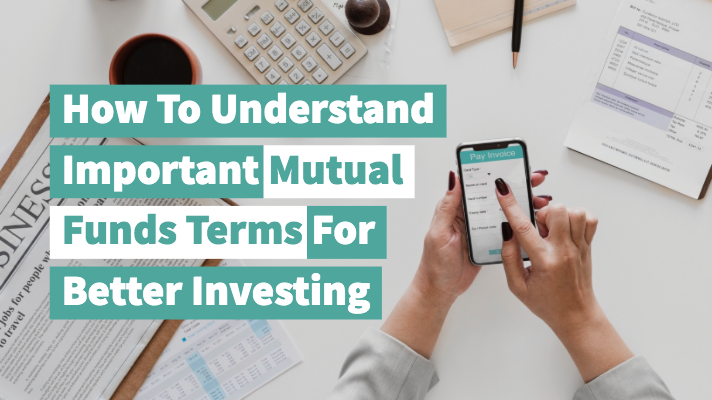Published : December 3, 2018

Money market mutual funds are a good short-term investment option available for retail investors in India. For retailers, there are very few options available for investment of surplus funds for short duration in India. However, adding are mutual funds scheme that invests exclusively in money market instruments.
In this blog, I will cover exclusively things any retail investor needs to equip him/herself. Furnish with the knowledge that is must for investment in money market funds. Right from the introduction, meaning, importance and type of money market mutual funds, I will discuss briefly how it functions. In short, we call money market mutual funds as MMMF. The characteristic features along with the advantages and disadvantages of MMMF, I will also cover here.
At last, you will be in a position to answer this. Whether as a retail investor you need to have MMMF schemes in his/her portfolio or not? Besides, will give some examples and differentiate it from other liquid/debt investment options available. But before I start let us have a discussion of the history of the evolution of money market funds.
Taking up any topic further, we all need to know about history. In the year 1971, Bruce R. Bent and Henry B.R. Brown introduced the money market funds to the investment world. These funds were “reserve fund” and was for those categories of people who believe in the preservation of cash with earning less rate of return.
In India, however, the MMMF was introduced in April 1991 by the RBI. The whole idea of an introduction to the Indian market was to give a supplementary short-term investment avenue to investors. Also, the RBI wants to bring money market instruments within the reach of individuals through mutual funds schemes.
Money market mutual funds refer to an open-ended mutual fund scheme. In open-end schemes, the investment is made up of the pool of money taken from many investors. These pool of money are invested in securities such as stock, bonds, money market instruments or any other company assets. The MMMFs, in particular, invests in short-term debt securities such as treasury bills and commercial papers.
The objective of money market mutual funds is to protect capital while acquiring a nominal yield. These funds are usually used by companies and institutions to manage their short-term cash needs. Money market fund schemes are very secure investments. The investments are done through short-term treasury bonds, certificates of deposits (CDs) and short-duration corporate debt. Due to less duration of time, these are considered to be less risky. It means that the investors would not easily lose money investing in such schemes. Therefore, they are safer than any other investment options.
The maturity period is less than a year. These help in preserving liquidity. The organizations need ready access to cash and other highly liquid investments to fund their financial responsibilities, but the funds at the bank give the low rate of interest. So for this money market fund schemes play a vital role because these funds provide much higher returns and always considered as immensely safe investments.
I will be covering an exclusive blog article on “How to pick a right kind of money market mutual funds for your portfolio?“. In this, I will be discussing the available options for any retail investor willing to invest in the money market mutual funds scheme. Here is the list of available banks and financial institutions that runs MMMF schemes, for your reference. Each of these fourteen funds has a couple of schemes each with variations to suits the requirements for both risk lover and risk-averse investors.
If you need to know more on MMMF, do not hesitate to contact us. We have a dedicated team waiting to serve for all your mutual fund’s investment requirements.
Money market mutual funds invest in debt which tends to mature in less than one year. Hence, they are highly liquid. Secondly, the treasury bill makes the bulk or group of money market instruments. Thirdly, securities in the money market are actually risk-free. The following are the tools where money from money market mutual funds can invest –
As discussed earlier, the money market usually deals with short-term funds which are mainly used to fulfil working capital requirements. Therefore, money market mutual funds enable commercial banks and other institutions to issue their unused funds for the shorter time period. These funds make such an arrangement that the banks can lodge their short-term funds on its own. But these funds are seen not to be supported by private sectors and this is because there can be no guarantee or protection for these funds.
Thus, money market mutual funds in India primarily invest in the following instruments-
You can shortlist taking the following criteria into considerations:
Investors are offered with growth and dividend options. When we talk about dividend opinion, investors have freedom of choosing investment on the daily, weekly or monthly basis and this depends upon their investment horizon and investment amount. Moreover, the payment of redemption is typically done within one working day of placement of redemption request.
Taking further the discussion let us consider the pros and cons of money market mutual funds in the below paragraphs.
We have been talking about liquid funds, now what is actually liquid funds are:
These funds invest in extremely liquid money market instruments and debt securities of minute tenure and therefore provide high liquidity. The main objective of fund manager of liquid funds is to invest in only those who have good credit rating with the lower level of default. Some key features of the good liquid fund are Control over expenses in the form of low expense ratio, overall very good quality of the portfolio and proper approach to investing. Surplus cash in the money market mutual funds earns higher post-tax returns. it earns with a reasonable degree of safety of the principal amount and provides liquidity. Liquid funds are preferable takes a shorter period of time for say 1 day to 3 months.
When there is the sudden inflow of cash to the investors which can be an individual or an organization, the wealth managers advice the investors to invest in liquid funds as it is that it may give an enormous bonus, the sale of real estate and so on. This is advisable when you are not sure about where and how you need to invest your money. Investors who look for opportunities in equities and long-term fixed income instruments can also invest their money in liquid funds. There are lot many investors who use liquid funds to stagger their investments into equity mutual funds using the Systematic Transfer plan(STP), this is all because the investors have a faith that this method can provide higher yield returns. Liquid funds have no such charges as exit loads.
Concluding this difference, the investors have a large field of investment options with a different purpose. One needs to understand the suitability about which can be more feasible to invest and moreover what is their expectations from investment or funds. Although, the dividends you receive from the funds are no extra money, unlike the stock dividend. It is actually investor’s own money.
There is very low default or credit risk in liquid funds. These funds are basically open-end income schemes. It includes investment in debt and money market instruments. The maturity period for these instruments is below one year. Investments in such instruments are safer because they mitigate interest rate volatility risk. The most attractive factor of these funds is the liquidity. This is so because in case of redemption you will get the payouts to your bank account on the very next workday. Most of the liquid funds do not have lock-in-period. Also, there is no exit load. Further elaboration, the liquid funds also offers quick redemption access facility on withdrawals up to INR 50,000. Whereas, investments up to INR 1 lac in a savings account covers deposit insurance.
Let’s suppose if an investor desires to invest for the small time frame and earn superior returns, then the answer to this can be liquid funds. Liquid funds are mostly tax efficient as they add up to higher post-tax returns. The ideal alternative to short-term fixed deposits is obviously liquid funds.
If we move towards taxation on liquid funds then the liquid funds same like other debt funds. If the investor holds the fund for less than 3 years of time, then it attracts short-term capital gains (STCG). You need to pay STCG in accordance with the tax slabs for prevailing on that time. Moreover, if you hold the fund for more than 3 years then you need to pay long-term capital gains (LTCG). Currently, you need to pay 20% with indexation benefit as LTCG on liquidating any long-term investments.
Concluding the writing I would like to suggest that an investor must invest in money market mutual fund. Taking it short, the investors need to keep a check on their investment. This may include the maturity period or interest rate of return. Furthermore, the security of the investment as well. It means your investment requires to be safe.
Also one needs to know the about taxable income which further elaborates about the taxes applied on the investment scheme. Therefore, mostly the money market funds are tax-free. They do not pay tax on any income from such investments. The liquidity and volatility of the investment also need to be taken into consideration. As because the investment done by small organizations or an individual for a shorter period of time are more concerned about the liquidity nature of the funds.
You can shortlist funds by analyzing and researching the funds. This means that the investors have to always look for the credit rating of any such funds. And for this, the agencies involved in this process can help the investors in a better way because they keep checking the investment schemes and rate them accordingly.
Therefore, a piece of final advising. If you are willing to invest with the cash ready in your bank savings account you must invest in MMMFs. This is because these funds have shorter maturity period, higher interest rate, tax-free, highly liquid in nature. Furthermore, volatile and it is a great way to park your money. Comparing with other funds the suggestion is to invest in the money market mutual fund after analyzing and researching on every bit point of the fund.

Enjoy flexible trading limits at
lowest brokerage rates ?
Open Your Investments Account Now
0Account Opening Charges
Life Time Demat AMC
Brokerage







Ensure the security of your investments by updating your nominee details in your trading & demat account online. It’s quick and hassle-free!
📌 Act Now to Stay Compliant
For assistance, contact our Customer Care at 0562‑4266666 and email askus@rmoneyindia.com.

IT'S TIME TO HAVE SOME FUN!
Your family deserves this time more than we do.
Share happiness with your family today & come back soon. We will be right here.
Investment to ek bahana hai,
humein to khushiyon ko badhana hai.
E-mail
askus@rmoneyindia.com
Customer Care
+91-9568654321